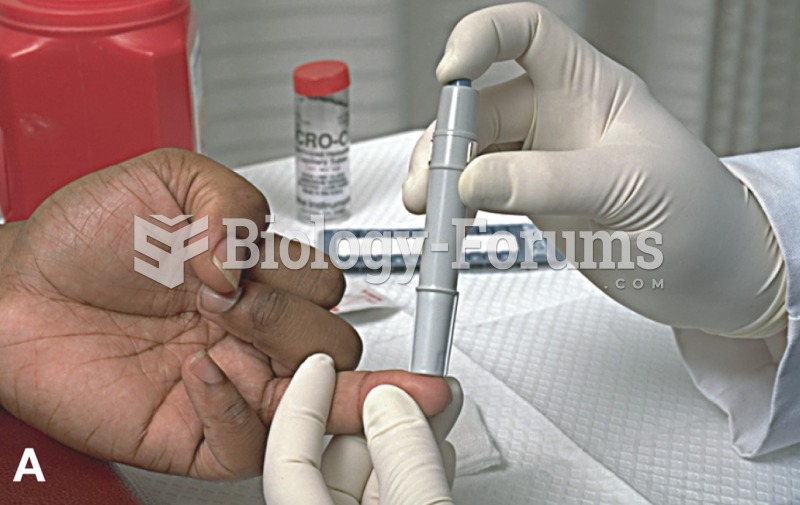|
|
|
Drugs are in development that may cure asthma and hay fever once and for all. They target leukotrienes, which are known to cause tightening of the air passages in the lungs and increase mucus productions in nasal passages.
After 5 years of being diagnosed with rheumatoid arthritis, one every three patients will no longer be able to work.
According to the FDA, adverse drug events harmed or killed approximately 1,200,000 people in the United States in the year 2015.
This year, an estimated 1.4 million Americans will have a new or recurrent heart attack.
About 60% of newborn infants in the United States are jaundiced; that is, they look yellow. Kernicterus is a form of brain damage caused by excessive jaundice. When babies begin to be affected by excessive jaundice and begin to have brain damage, they become excessively lethargic.







